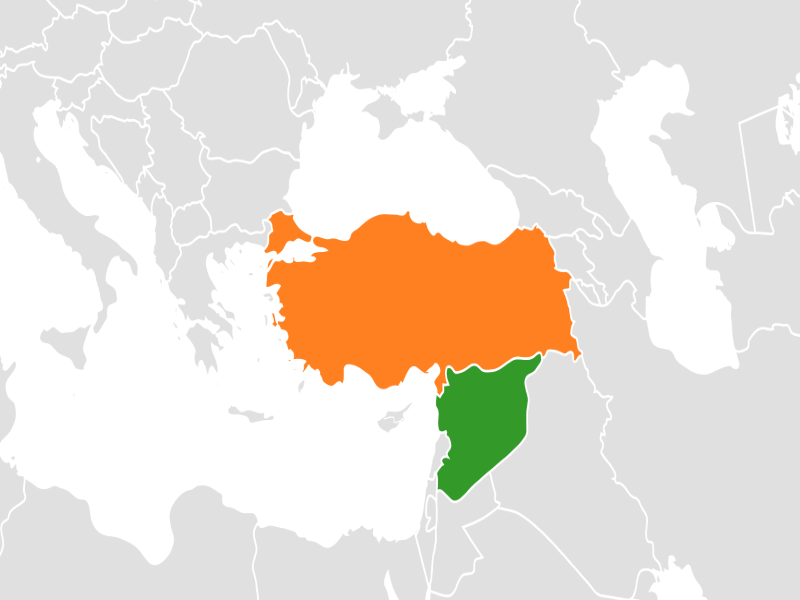Background
“We have no eternal allies, and we have no perpetual enemies. Our interests are eternal and perpetual, and those interest it is our duty to follow.”
These words, spoken in 1848 by the former British Prime Minister Henry John Temple Palmerston, are widely cited as among the most popular and accurate descriptions of international relations. The quote emphasizes that states act in their own interests rather than based on integrity and ethics. The US’s recent actions in Syria can be understood in this context.
Recently, Donald Trump announced that his administration would withdraw military troops from the Syrian border because their mission to defeat ISIS was complete. Soon after, Turkey launched an incursion into northeastern Syria, an area with a predominantly Kurdish population. One of the reasons underlying the Turkish incursion is the growing power of the Kurdish minority within Turkey itself. According to CIA Factbook, there are approximately 12 million Kurdish, constitutes 19% of Turkey’s population, in Turkey.
The People’s Protection Units (YPG), mostly consisted of ethnic Kurds and the primary component of the Syrian Democratic Forces (SDF), took over the northeastern Syria territory and established a semi-autonomous state. Turkey views the YPG as being closely linked with the Kurdistan Workers’ Party (PKK), a group that aims to achieve a Kurdish state within Turkey. In order to prevent the separation of Kurds from Turkey, Turkish president Recep Tayyip Erdogan invaded Northern Syria to push YPG fighters further away from the Turkish border. Turkey also aims to create a “safe zone” in parts of Northern Syria to return Syrian refugees by clearing that area.
Turkey’s Importance in American Foreign Policy
Trump has been criticized by politicians and officials on all sides of the political spectrum for the Syrian withdrawal, with many viewing his action as morally reprehensible, with the potential to create several new threats in the region such as the re-emergence of ISIS. This is because the US has been working together with the Kurds in Iraq and Syria, and the decline of US involvement in the Middle East is viewed as an abandonment. However, since Donald Trump became the president, the US strategy toward the Middle East has been changed compared with the previous administrations under Bush and Obama. Previous governments’ strategic goal in the Middle East was creating liberal democracies in the region after eliminating the threat of transnational terrorism. In contrast, Trump has shown less interest in expanding democracy but more in the US’s economic growth and isolating states that challenge the US’s unipolar international objectives.
A recognized geopolitical forecaster and strategist on international affairs, George Friedman, identified three missions in American strategy towards foreign states, each directed against a major geopolitical threat to American interests: China, Russia, and Iran. Trump is using a strategy of containment to isolate those countries. For China, the US is strengthening alliances with the countries surrounding China: Japan, Indonesia, Singapore and South Korea. For Russia, the US is maintaining a tight relationship with Poland and Romania. In this framework, Turkey can play a significant role. Turkey is not only close to Russia but can also provide a counter to Iranian expansion. Turkey is one of the countries exhibiting rapid development and urbanization since 2000. The US can strengthen its position relative to Russia and Iran by strengthening bilateral ties with Turkey. From this view, Trump’s actions on the Syrian border can be understood as a gesture towards Erdogan to deepen the America-Turkey relationship, albeit at the expense of one of America’s most reliable allies in the region – the Kurds.
How About NATO?
There are concerns in the media regarding whether NATO’s Article 5 – the principle of collective defence, could be invoked by Turkey in the event of a Syrian counterattack. According to Article 5, the members of the NATO alliance will take action to assist the attacked country if each and every other member of the alliance consider it an attack on the entire body. However, if a Syrian attack was considered a direct response to Turkey’s incursion, which was outside the will of other member states, other NATO members may well determine that Article 5 is not applicable.
During a recent press conference by NATO, the Secretary-General Jen Stoltenberg mentioned there are different views in NATO members. However, he also stated that the alliance agreed to stay united in addressing the problem and to cooperate on deriving a political solution to the conflict in Syria. Specifically, NATO is calling for a stronger international political engagement between the US and Turkey, and they agreed on implementing a joint statement.
Conclusion
The recent decision of Donald Trump to withdraw American troops can be interpreted as a decision geared towards American national interest to strengthen the framework of containment against its main rivals, at the expense of a long and productive relationship with its Kurdish allies. By ceding the Syrian border region to Turkey, the US might be hoping to more effectively isolate Russia and Iran, thus enabling America to focus its resources on competing with China, the biggest threat to America’s unipolar international interests. Returning to the words of Viscount Palmerston, to understand a nation’s behaviour, the first step is understanding its interests.
Photo: “Turkey Syria borderline” by AteshCommons via Wikimedia commons. Licensed under CC Attribution-Share.
Disclaimer: Any views or opinions expressed in articles are solely those of the authors and do not necessarily represent the views of the NATO Association of Canada.




